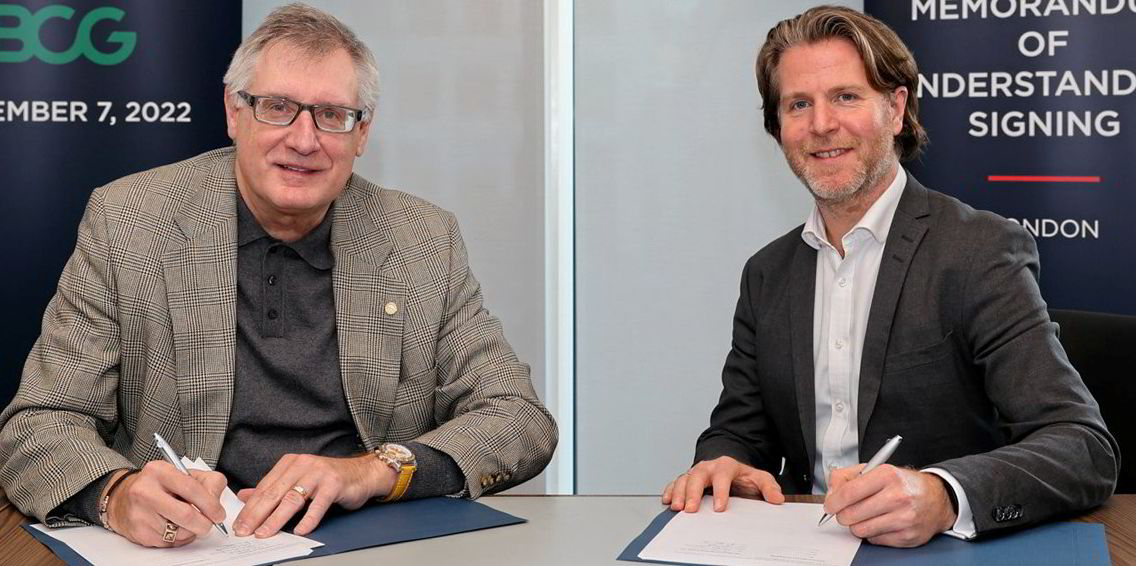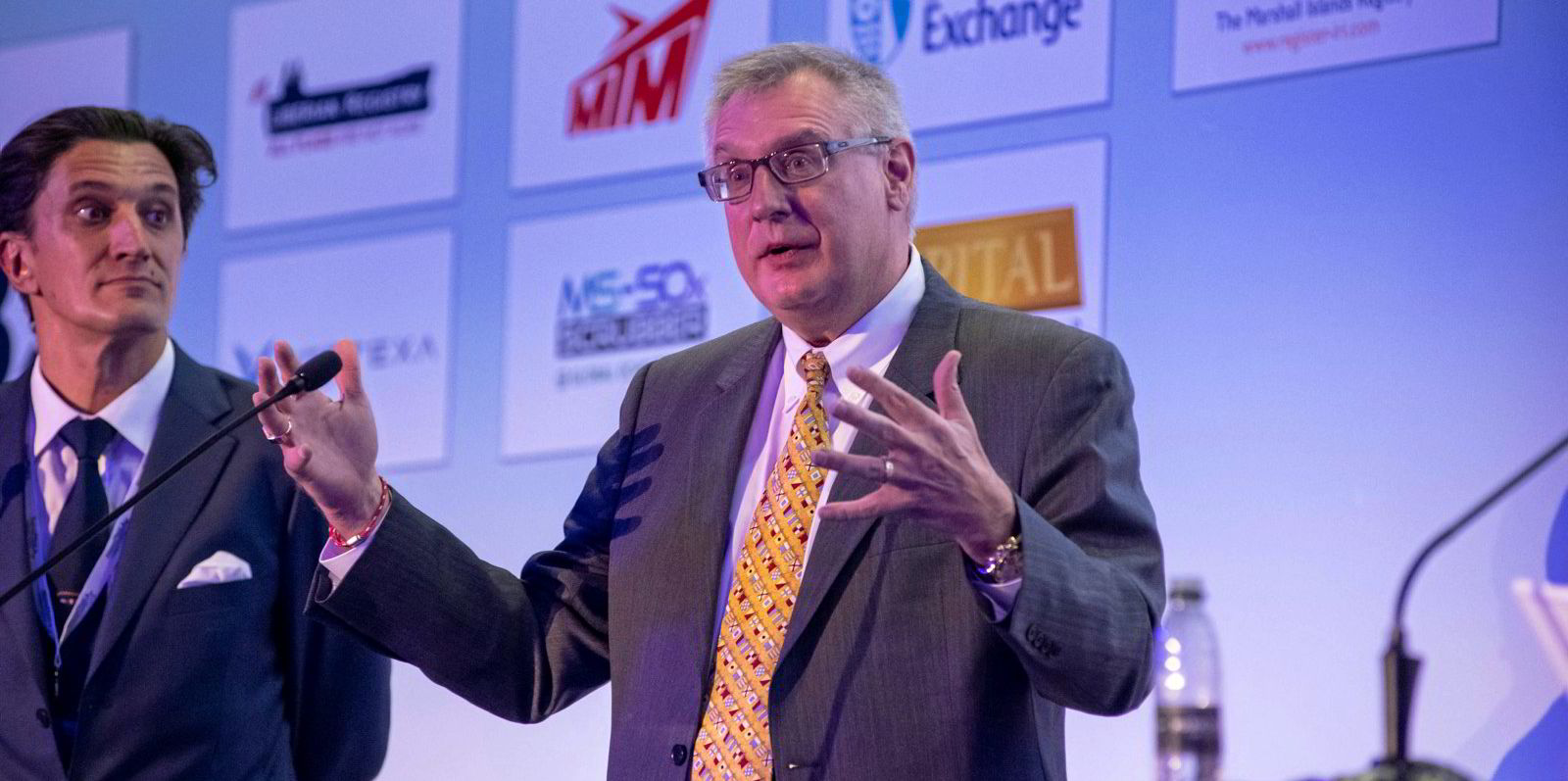Global business advisor Boston Consulting Group (BCG) and classification society ABS are teaming up to provide shipping with concrete strategies on how to decarbonise.
The aim is to combine the two groups’ change management and technical competencies to provide commercial advice for shipping companies and industry stakeholders to transform their businesses for the net-zero journey ahead.
Uncertainty around regulation and technology still allows companies to take a bold leadership position, said Peter Jameson, global lead for climate & sustainability in BCG’s infrastructure, transport & cities practice that “will create an advantage for first movers and sustainable business for followers”.
ABS chief executive Christopher Wiernicki said shipping is at an early stage in a decade of transformation that provides “companies an opportunity to compete in a new world where they can take advantage of carbon economics”.
Talking to TradeWinds, Wiernicki and Jameson said the joint effort would investigate carbon capture technologies and the uptake of alternative and low-carbon fuels and provide other consultative services to support carbon reduction strategies.
Jameson said they are already in discussion with companies and governments and close to moving forward with projects with them.
The two groups believe in simplifying the complexities by understanding the details. Both are members of the Maersk Mc-Kinney Moller Center for Zero Carbon Shipping, which is cooperating on research, but the BCG-ABS initiative aims to help companies put that into action.
Companies “will need to reinvent themselves”, said Wiernicki; they are mainly vertically aligned, but the implications of digitalisation and decarbonisation are that they will have to link horizontally across industries.
Jameson said derisking future fuel choices means companies need to make decisions now. They may not be able to source green methanol for dual-fuel vessels yet, but should start making choices today that will secure supplies some years ahead.
“It takes strategic decisions around who do I partner with, where in the world, and do I put equity into those moves to secure that fuel is there for me at a cheaper cost in five years’ time,” he said, adding that green fuel demand then will probably mean spot commodity prices are higher than those that can be secured now.
The BCG-ABS memorandum of understanding is also aimed at helping businesses that feed into the low-carbon value chain, including renewable energy producers, low-carbon fleet development and subsea storage.
Wiernicki said infrastructure and safety issues mean the relationships between governments, regulators, charterers, traders and shipowners’ strategies will become more interconnected.
“How do you begin to rationalise all these trajectories? And how do the strategies come together?” he asked.
“These are the things that, because of the expertise we bring to the table, we are now able to bring forward and have that discussion at the CEO level.”
The two groups aim to set up combined teams that will look at specific issues for companies, bringing in outside resources if necessary.





